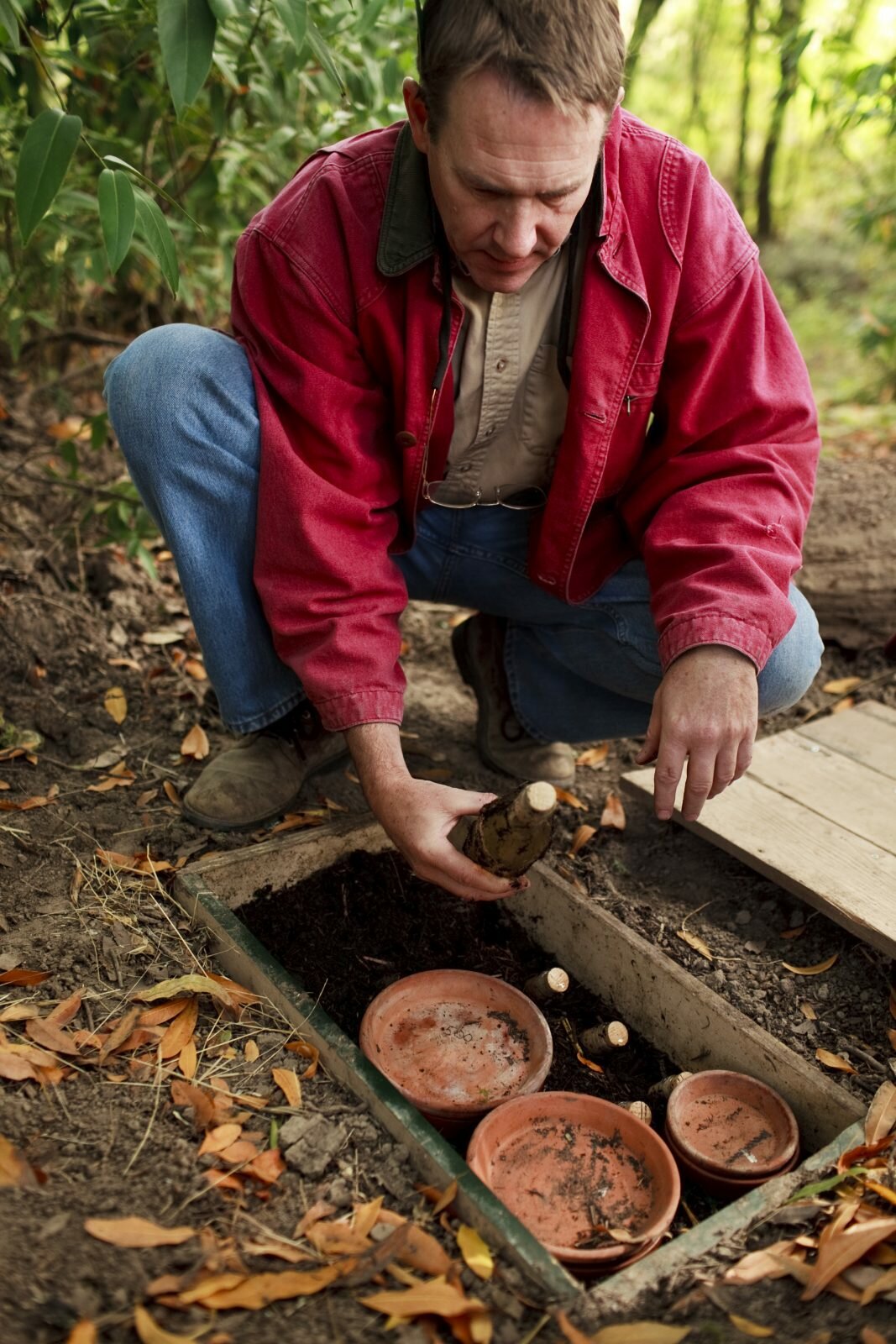In coastal Sonoma, winemaker Ted Lemon and his workers are huddled around a barrel as they drain its contents, separating the wine from sediments that have settled at the bottom. It is a labour-intensive and time- consuming task, and in the unheated winery, their exhaled breath is visible on this rainy winter morning. While most winemakers use pumps to aid in the process, Lemon adopts an old-school approach known as esquive, a gentler process where the wine is drained via gravity flow. It is a throwback to his time working in Burgundy in the early 1980s, where he learnt the traditional ways of winemaking at the region’s top domaines.
Lemon is the founder of Littorai Wines, one of the most feted wineries in California. Wine critic Antonio Galloni describes his range of single-vineyard pinots and chardonnays as “essays into the great terroirs of the Sonoma Coast and Anderson Valley”. From inception, Littorai’s wines have stood out for their elegance and fine-boned structure, a style markedly at odds with the fruit-forward, high-alcohol wines that were in vogue.
Having begun to question conventional methods of farming and their effects on the long-term health of soil in the late 1990s, Lemon dared to walk his own path.
“I had just gotten to the point where I felt like a hamster on a wheel going around and around,” he tells me. “My question to myself was: What does nature know that I don’t know? The forest is self-sustaining. I felt that mineral fertilisation was an inadequate explanation for how and why plants grow and reproduce.”
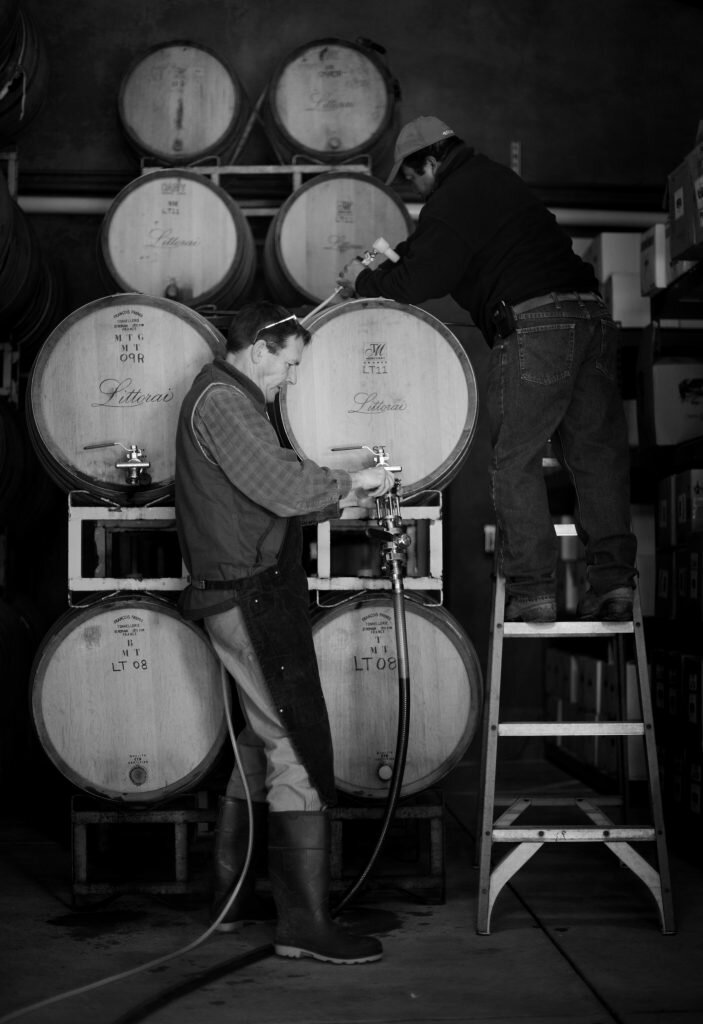
(Image: Littorai Wines)
Moving away from established agronomic practices, Lemon tried his hand at biodynamics, a philosophy developed by Austrian philosopher Rudolf Steiner in 1924. To casual observers, some practices in biodynamic farming may border on mysticism, with concepts such as etheric life force and celestial influences. Rather than treating the vineyard as a separate entity, Lemon works towards creating a self-sufficient ecosystem whereby whatever treatments that are needed are produced onsite. A barn on the Littorai property contains stores of dried plants such as dandelions, chamomile and valerian flowers, used in special biodynamic preparations that help to energise the soil and promote microbial life. These preparations are integrated into compost made from cow manure and hay grown on the property, a massive stack that’s half as tall as the workers tending to it.
Given that Lemon received his oenology degree from the University of Dijon in Burgundy, I wondered how biodynamics squared with what he was taught.
“Obviously I struggled at the beginning,” he says. “But I didn’t have any problem understanding that material science is a path of knowledge; and as a way of knowledge, it changes all the time. The other advantage I had, having been a language student, was that I quickly learned that understanding biodynamics is about understanding the language of biodynamics. It’s a way of viewing the world, just as all cultures have a different view of the world.”
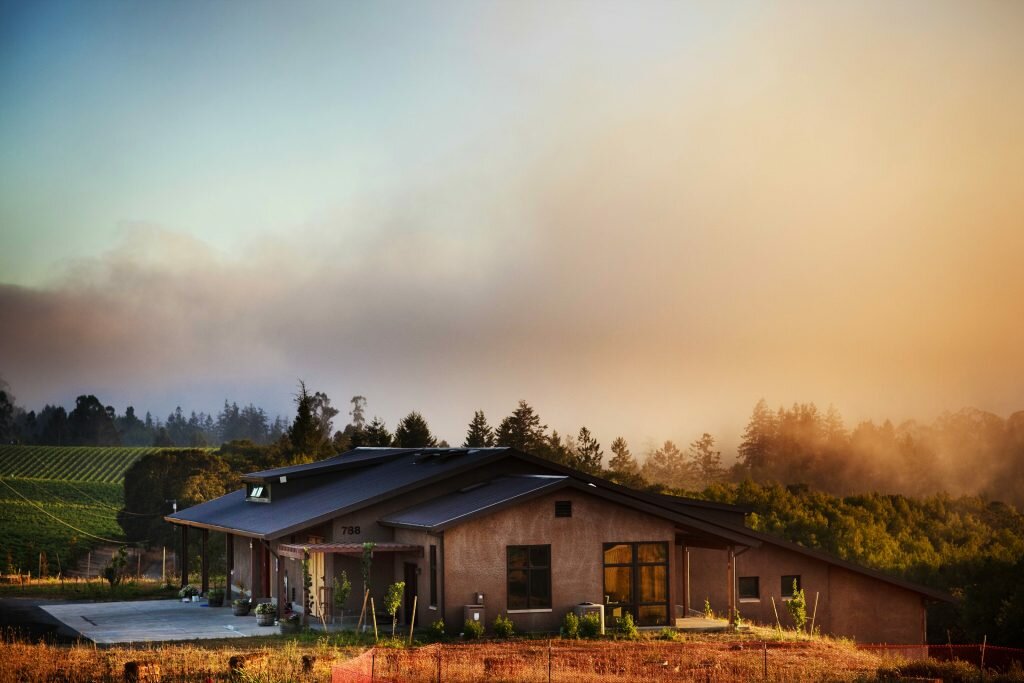
(Image: Littorai Wines)
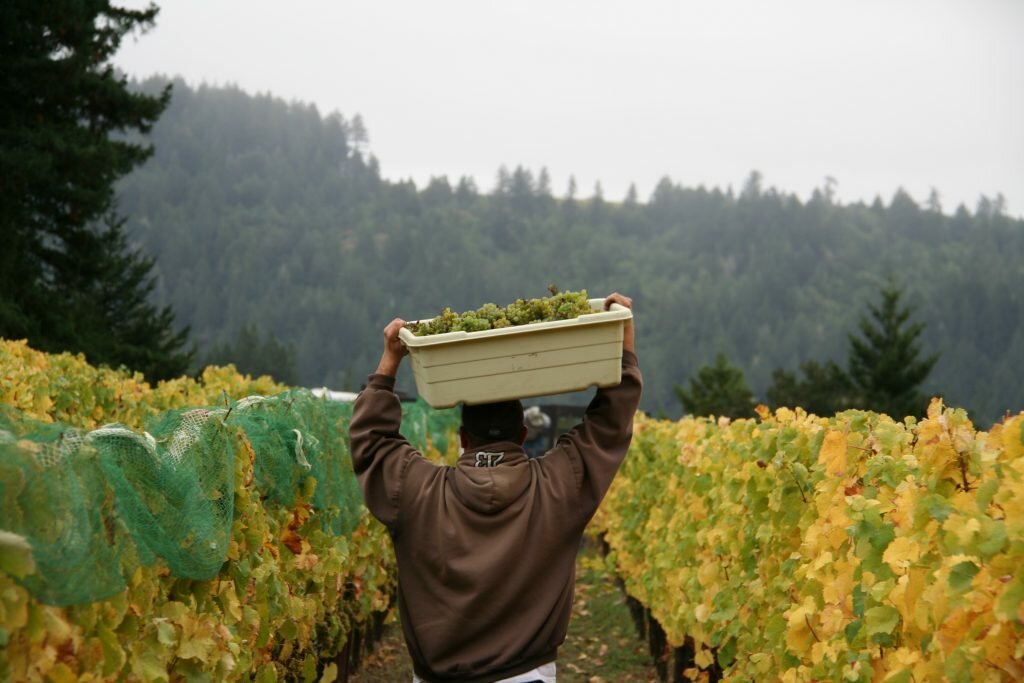
(Image: Littorai Wines)
Today, the Littorai property spans 33 acres, only three of which are planted with vines; open pastures and a natural forest comprise the rest of the estate. During your visit, you’re just as likely to encounter sheep placidly grazing on weeds as you are bunches of grapes.
Lemon is not alone in his belief that winemakers can and should do more for the environment. Master of Wine and owner of Bedrock Wine Co. Morgan Twain-Peterson follows an approach known as agroecology, which eschews chemical treatments and focuses on improving soil quality through planting cover crops such as fava beans and cowpeas in between vine rows.
A virtuoso in making expressive, limited-edition wines from old zinfandel plantings, Twain-Peterson turned to agroecology when he bought a historic 33 acre vineyard in Sonoma Valley that dates back to 1888.
“When we took it over, the vineyard had been farmed very poorly for a long time,” recounts Twain-Peterson. “A lot of fertiliser and pre-emergent herbicide had been used and, as a result, the vines were not as good as they should have been. We basically started rebuilding the soil biology from scratch by adding lots of compost and growing cover crops.”
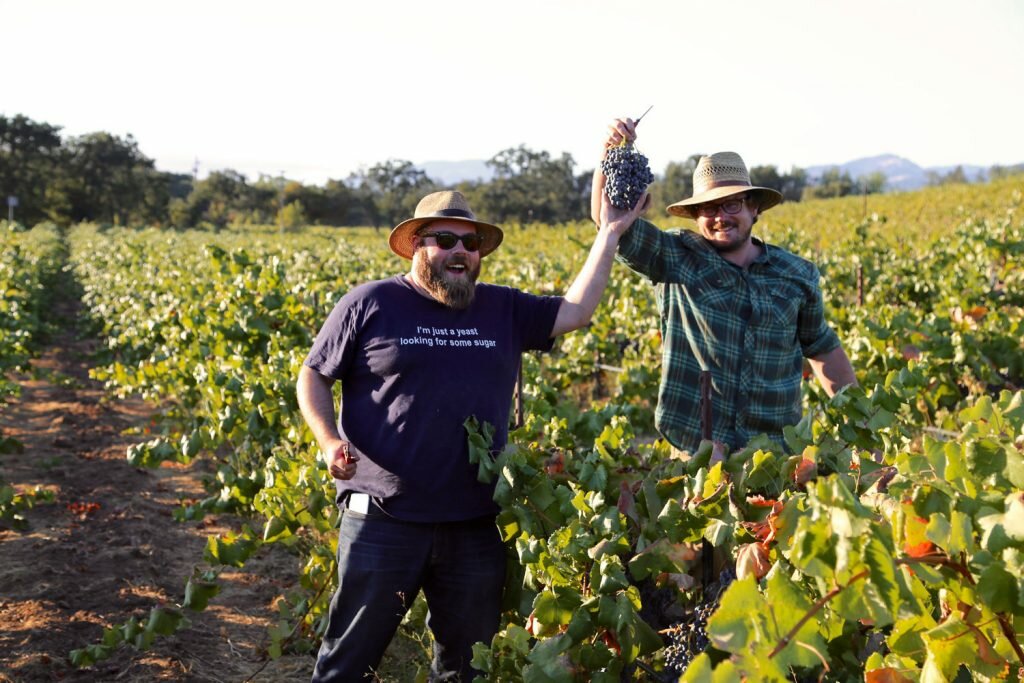
(Image: Bedrock Wine Co.)
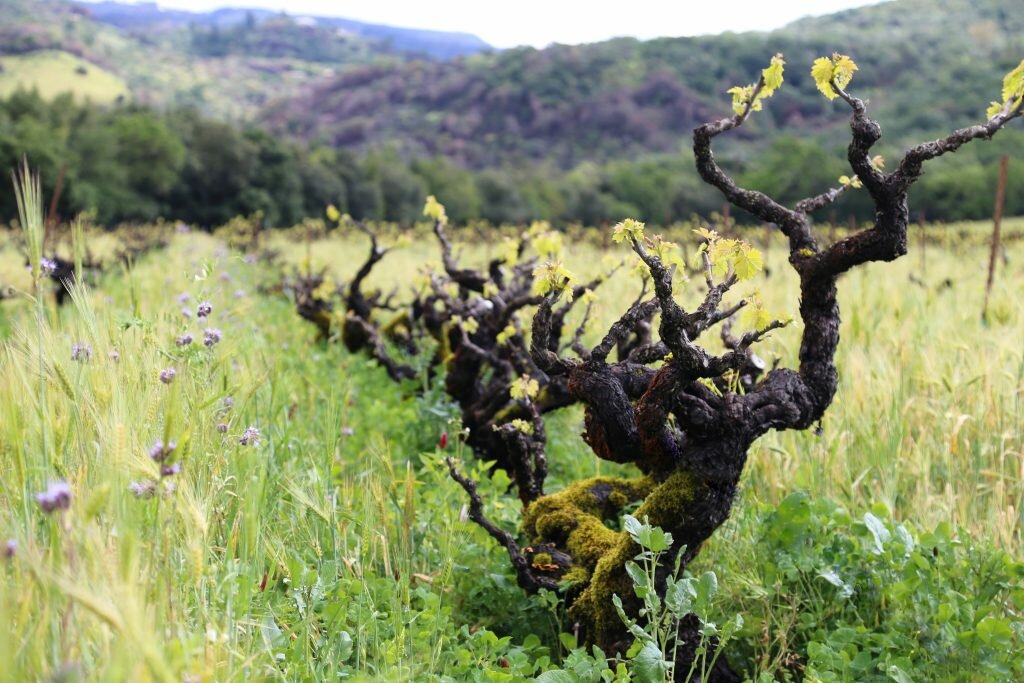
Doing this meant a change in mindset on what a healthy vineyard should look like. “Our vineyards are a little wild and ragged-looking compared to the perfectly meticulous rows you’ll see elsewhere. I used to think they look bad… now, I just feel like they’re full of life, and when I see a vineyard that’s completely clean, it kind of creeps me out a little bit. You need to have the biodiversity.”
Farming ecologically yielded potent results, providing Twain-Peterson with the blueprint for rehabilitating other old vineyards.
“What we saw was this incredible turnaround of the vineyard, where we were seeing better flavour and ripeness at lower potential alcohol,” he enthuses. “More than that, we just saw better vigour in the vines and better health in the vineyard as a whole. In some cases, we have taken over some vineyards that were economically non- viable and turned them back into viable economic entities.” It explains how he is able to craft refined, berry-scented wines from zinfandel, a variety usually associated with ultra-ripe, high-alcohol styles.
At Littorai, Lemon also noticed the benefits of switching to biodynamics.
“You see better resilience in the vineyards. The vines do better in adverse conditions, whether it’s drought or rain or whatever it might be. They are more even in their growth — in the really vigorous years, they don’t go crazy and in the low vigour years, they don’t suffer.”
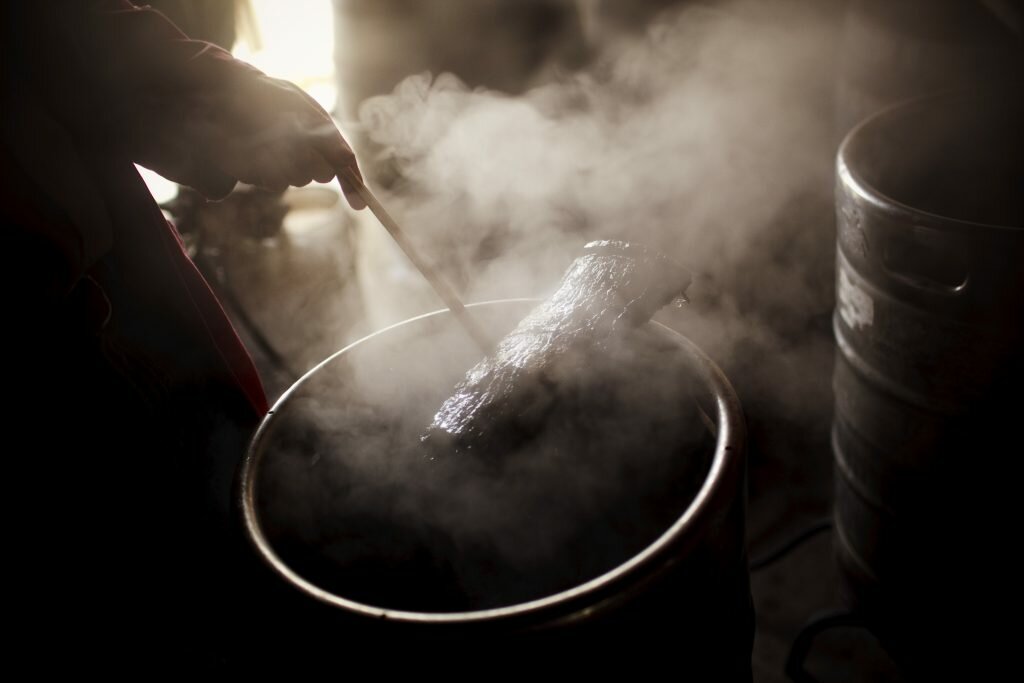
(Image: Littorai Wines)
The key question is: Does farming sustainably lead to better wines? After all, Littorai wines were highly sought after even before Lemon converted to biodynamics.
“We’ve all had absolutely fabulous wines from conventional winemakers. So being organic or biodynamic doesn’t guarantee a decent wine; great sites are great sites. So I think it’s anything that improves vine health and reduces vine stress over time that improves the wine,” Lemon opines.
Twain-Peterson sees a definitive link between soil health and the finished wine.
“Basically, you control the entire microbial aura around the vine based on how your soils are. So if you have very healthy soils that are well fed and balanced, you tend to have much healthier vines and healthier fermentations in the winery, and I think the wines end up being a little bit more complex.”
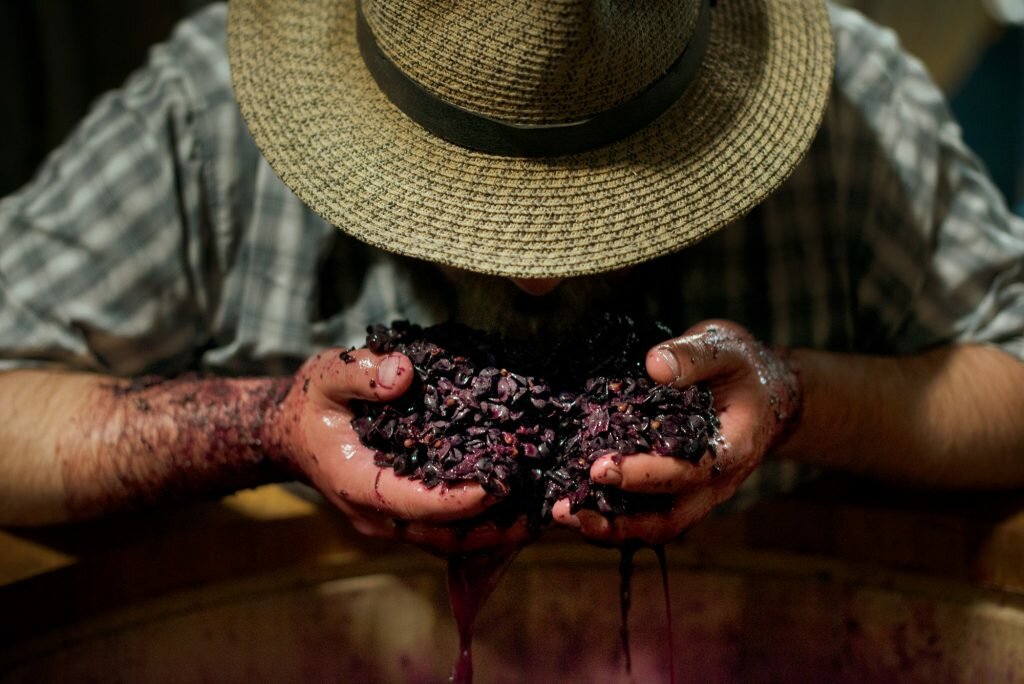
(Image: Bedrock Wine Co.)
His and Lemon’s laudable efforts are not to be categorised with the spiel one often gets from corporations who brandish sustainability as a marketing term rather than a serious commitment to making lasting change — a phenomenon known as “greenwashing”.
“Everybody claims sustainability but there is no actual definition of it,” Twain- Peterson explains. And while he and Lemon are proponents of environmental stewardship, both are wary of subscribing to organic certifications, preferring the freedom of pushing the envelope instead.
Sustainable farming does not need to be a wholesale approach, says Lemon.
“I think of alternative farming as being like a layer cake — you just add layers when you can. It’s about the path of finding what works for the individual property and its circumstances — they’re all different.”
This story first appeared in the May 2020 issue of A Magazine.
